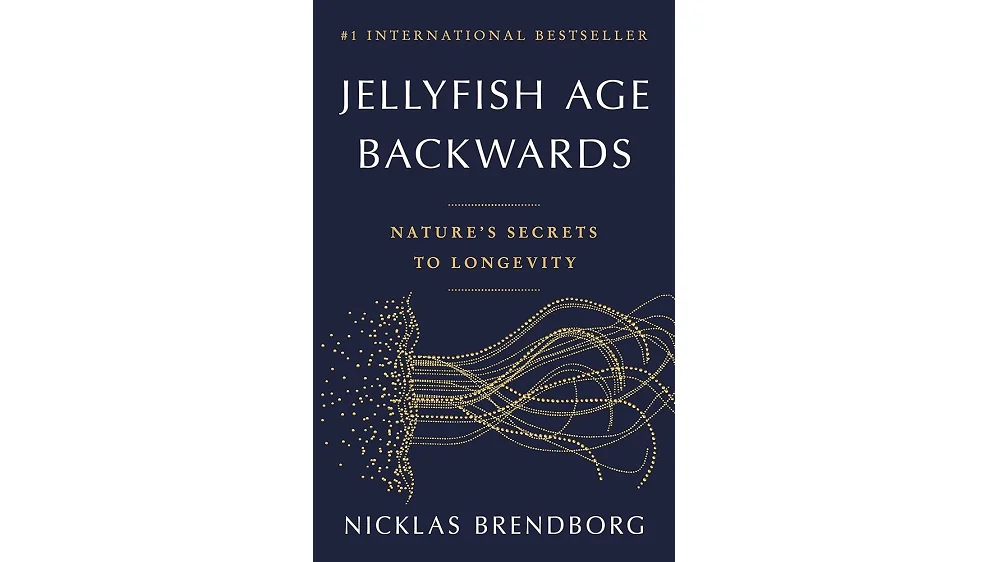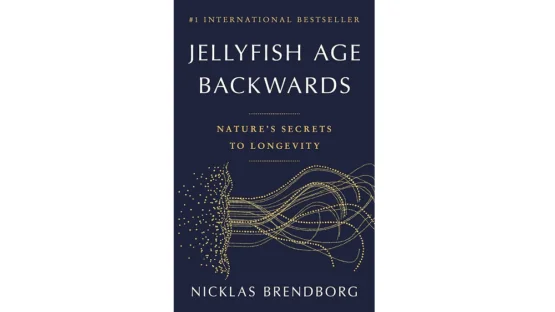The quest for eternal youth, encapsulated in Dr. Malcolm’s fictional yet profound declaration that “Life finds a way,” mirrors humanity’s age-old fascination with longevity. This fascination isn’t new; as Nicolas Brendborg’s “Jellyfish Age Backwards – Nature’s Secrets to Longevity” expounds; it’s as ancient as the epic tales of Ponce de Leon’s mythical fountain of life and the epic of Gilgamesh.
Long-lived animals, long-lived people
Brendborg’s narrative embarks from these storied beginnings to explore the longevity of Earth’s most enduring inhabitants, from the ancient Greenland Shark, which serves as an intoxicating delicacy for Icelanders, to the centuries-old bowhead whale and beyond to the realm of seemingly immortal trees and superorganisms like Pando.
Brendborg excels in intertwining humor with intriguing asides, making the science of longevity both accessible and entertaining. His examination extends into how certain lifestyle and dietary habits within human “Blue Zones” contribute to an extended lifespan, subtly hinting at the complex interplay between genetics and environment. Yet, Brendborg remains grounded, pointing out that while genes play a role, they might not be the ultimate deciders of lifespan. He ventures into the scientific underpinnings of aging, discussing theories like mutation accumulation and antagonistic pleiotropy with relatable examples.
Brendborg’s exploration is broad and deep, venturing into the biology of aging with a critical eye on popular theories and interventions. He discusses the efficacy of antioxidants, the concept of hormesis, and the body’s nuanced response to stress. His analysis is grounded in science yet imbued with a narrative charm that engages readers, making complex concepts relatable and thought-provoking.
A deeper look
The book’s latter chapters delve into more specialized topics, such as the role of senescent cells and senolytics in aging, the promise and pitfalls of stem cell research, and the controversial practice of blood transfusions for rejuvenation. Brendborg presents each subject with clarity and skepticism, highlighting cutting-edge research and such interventions’ limitations and ethical considerations.
“Jellyfish Age Backwards” also addresses the microbiome’s impact on aging, the potential of fasting and caloric restriction, and the ongoing debate over nutrition’s role in longevity. Brendborg’s foray into the genetic and epigenetic underpinnings of aging, including the fascinating case of the jellyfish that ages backwards, showcases the book’s overarching theme: the complexity of aging and the myriad factors that influence it.
Brendborg’s work is a testament to the richness of life and the unending quest to understand its final frontier: aging. His blend of storytelling and scientific rigor invites readers to reflect on their own lives and the possibility of extending them through knowledge and science. However, he remains realistic, reminding us that aging research is still in its infancy and that the search for a panacea is far from over.
“Jellyfish Age Backwards” is more than just a scientific discourse on aging; it’s a call to marvel at the natural world’s wonders and a reminder of the human capacity for discovery and understanding. Brendborg has crafted a work that is both enlightening and profoundly human. This captivating read leaves us pondering the nature of life, aging, and our collective quest for longevity.
Nicolas Brendborg’s “Jellyfish Age Backwards” contributes significantly to the literature on longevity and aging. It entertains as much as it informs, challenging readers to consider the possibilities of extending life not just in pursuit of time but in the quest for a deeper understanding of what it means to live fully. Brendborg’s narrative is a compelling blend of science, history, and philosophy that captures the imagination and stimulates the intellect, making it a must-read for anyone fascinated by the secrets of longevity.


